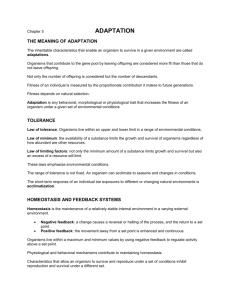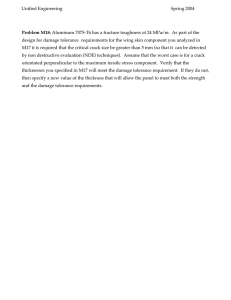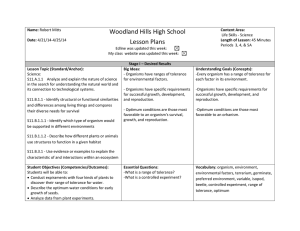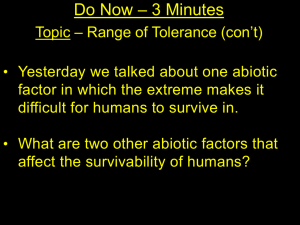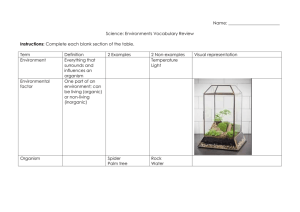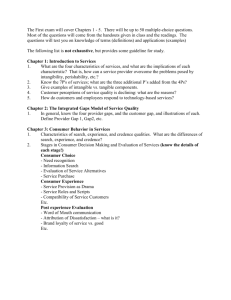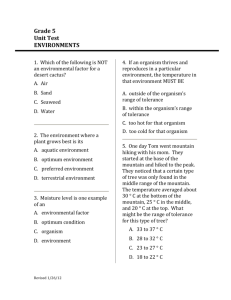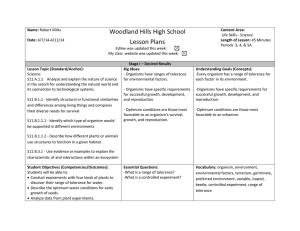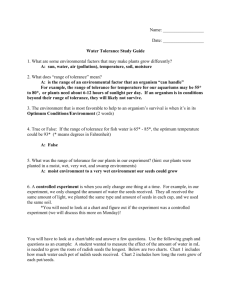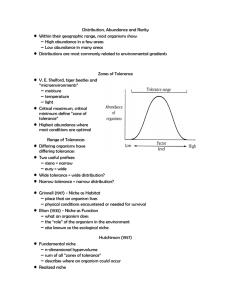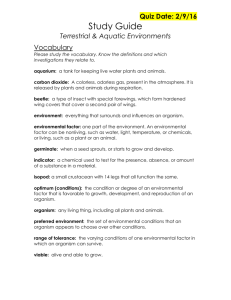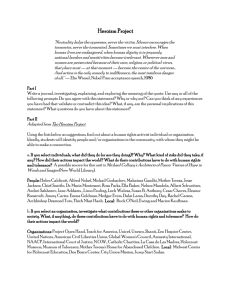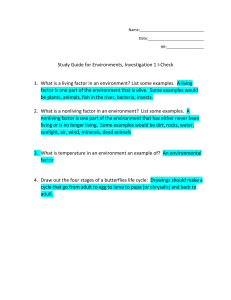Range of Tolerance
advertisement
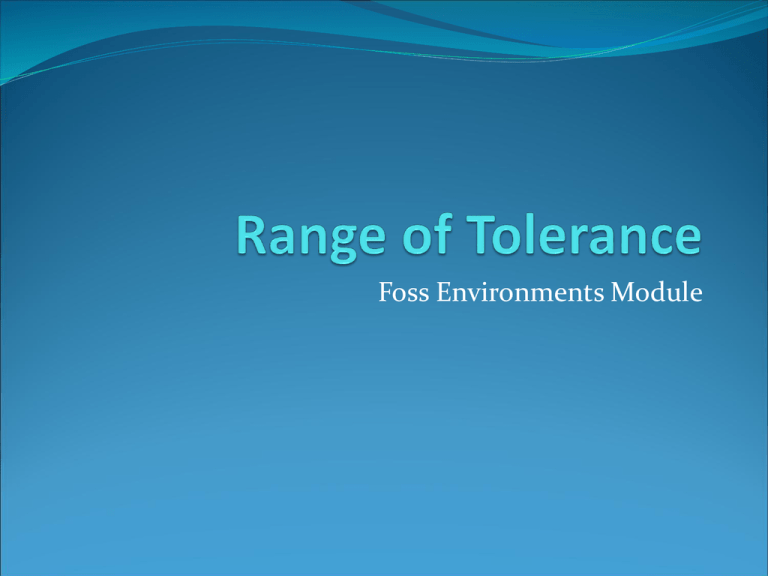
Foss Environments Module Environmental Factors A relationship exists between a number of environmental factors and how well organisms grow. Environments factors (living or nonliving) can either help an organism grow or prevent it from growing. Some factors could be temperature, amount of rain, or the quality of the air or water. Preferred Environmental Conditions Each organism has a set of preferred environmental conditions. The isopods we observed preferred to be in a dark and wet environment. That’s why the isopods tried to get under the black construction paper roof on our terrarium. Range of Tolerance Organisms have ranges of tolerance for environmental factors. The range will be the high and low extremes of tolerance for an environmental factor. Organisms have specific requirements for successful growth, development and reproduction. Example: There may be a coldest temperature and hottest temperature an animal can survive in their environment. That is their range of tolerance. Optimum Conditions Conditions that are most favorable for an organism to survive, grow and reproduce. This optimum is somewhere WITHIN the RANGE OF TOLERANCE for that organism. If an animal has a range of tolerance for temperature of 0-85 degree F somewhere within that temperature range will be the temperature that the animal grows BEST.



